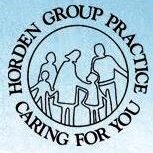Other Practice Staff
Primary Care Network Services
Horden Group Practice are part of Easington Central Primary Care Network. This is made up of three Practices:
- Horden Group Practice
- Blackhall and Peterlee Surgery
- William Brown Centre
We work together as a Network and try to share some of our Services. Therefore, we may sometimes share Staff Members who work across our Primary Care Network such as:
You may also be offered an appoinment at one of the other Practices within the Network with Members of the Network Team
Please click the link below for more information about the roles of the above mentioned staff and the services attached to our Primary Care Network:
Care Coordinator:
Care coordinators provide extra time, capacity, and expertise to support patients in preparing for clinical conversations or in following up discussions with primary care professionals. They work closely with the GPs and other primary care colleagues within the primary care network (PCN) to identify and manage a caseload of identified patients, making sure that appropriate support is made available to them and their carers (if appropriate), and ensuring that their changing needs are addressed. They focus on the delivery of personalised care to reflect local PCN priorities, health inequalities or at risk groups of patients. They can also support PCNs in the delivery of Enhanced Health in Care Homes.
First Contact Mental Health Practitioner
The mental health practitioner will:
- Provide a combined consultation, advice, triage and liaison function, supported by the local community mental health provider;
- Work with patients to: a. support shared decision-making about self-management; b. facilitate onward access to treatment services; provide brief psychological interventions, where qualified to do so and where appropriate.
- Work closely with other PCN-based roles to help address the potential range of biopsychosocial needs of patients with mental health problems. This will include the PCN’s MDT, including, for example, PCN clinical pharmacists for medication reviews, and social prescribing link workers for access to community-based support.
- Operate without the need for formal referral from GPs, including accepting some direct bookings where appropriate, subject to agreement on volumes and the mechanism of booking between the PCN and the provider.
- Be supported through the local community mental health services provider by robust clinical governance structures to maintain quality and safety, including supervision where appropriate.
The role of Mental Health Practitioners at your GP Practice
Nursing Associate
Nursing associate is a new role within the nursing team. Nursing associates work with healthcare support workers and registered nurses to deliver care for patients and the public. It is also a stepping stone to becoming a registered nurse.
Nursing associates work across all four fields of nursing:
- adult
- children
- mental health
- learning disability
Duties include:
- undertaking clinical tasks including venepuncture and ECGs
- supporting individuals and their families and carers when faced with unwelcome news and life-changing diagnoses
- performing and recording clinical observations such as blood pressure, temperature, respirations and pulse
- discussing and sharing information with registered nurses on a patients’ condition, behaviour, activity and responses
- ensuring the privacy, dignity and safety of individuals is maintained at all times
- recognising issues relating to safeguarding vulnerable children and adults
Introducing the Trainee Nursing Associate
Social Prescribing Link Worker
Social prescribing provides a 1:1 personalised support service with your Social Prescribing Link Worker (SPLW) who can help you with a wide range of social, emotional and practical needs with a focus on ‘What Matters to You’ helping to improve your mental/physical wellbeing and general health.
Social Prescribing Link Workers can work with patients, linking them up identified support, which can include,
- Benefit and Finances and Housing
- Employment, Training and Education
- Reducing Social Isolation
- General Wellbeing and Mental Health
- Weight Management
- Addictive Behaviours
- Smoking Cessation
- Support to manage long term conditions
- Bereavement
- Or any other current issues, which are non-clinical.
To access the SPLW service
Speak to the reception team at your GP practice for further Information or contact me directly via:
Name: Gemma Thompson
Mobile: 07724 895173
Facebook page: https://www.facebook.com/profile.php?id=100083315442167
Email: [email protected] Website: https://easingtoncentralpcn.gpweb.org.uk/pcn-services
The role of a Social Prescribing Link Worker
Child and Adolescent Mental Health Practitioner
Child and Adolescent Mental Health Practitioner’s can assist children aged under 18 years. They are not a crisis services and anyone who is in a crisis or at risk of imminent harm should contact the Crisis Team.
Ask to speak to/book an appointment with Beccy, our CAMHS MH Practitioner.
They are able to assist with things such as:
- Mood/Low mood/Depression
- Tearfulness/Reduced Motivation
- Anxiety/Wory/Panic/Stress
- Psychosis (hearing voices/visual hallucinations)
- Sleep
- Emotional/behavioural difficulties
- Eating Difficulties
- Obsessive Compulsive Disorder (OCD)
- Where the child or young person has a need associated with a neurodevelopmental condition i.e. Autism/social communication needs or Attention Deficit Hyperactivity Disorder (ADHD/ADD)
If a child or young person is already under regular mental health appointments with any other secondary care professionals they should seek support through these if possible.
First Contact Physiotherapists (FCP's)
The role of an FCP is to provide direct access to Physiotherapy Services.
Low back and neck pain are the greatest cause of years lost to disability in the UK, with chronic joint pain or osteoarthritis affecting more than 8.75 million people. In addition, musculoskeletal conditions also account for 30% of all GP appointments.
By 2024, all adults in England will to be able to see a musculoskeletal first contact physiotherapist at their local GP practice without being referred by a GP.
The vast majority of musculoskeletal first contact practitioners are physiotherapists with enhanced skills. They can help patients with musculoskeletal issues such as back, neck and joint pain by:
- assessing and diagnosing issues
- giving expert advice on how best to manage their conditions
- referring them onto specialist services if necessary
The role of First Contact Physiotherapists
Pharmacy Technicians
The pharmacist’s role in a primary care network (PCN) is new and exciting. ‘The pharmacists’ job description has evolved over time: initially all the prescription queries were handled by them which freed up a good deal of GPs’ time. Pharmacists can complete the independent prescribing course (supported by the practice), so are able to prescribe in areas in which they are competent.
Patient medication queries generated by patient requests for prescriptions, or prescribing recommendations from other health professionals, are dealt with by the pharmacist. Again, this saves our GPs valuable time.





